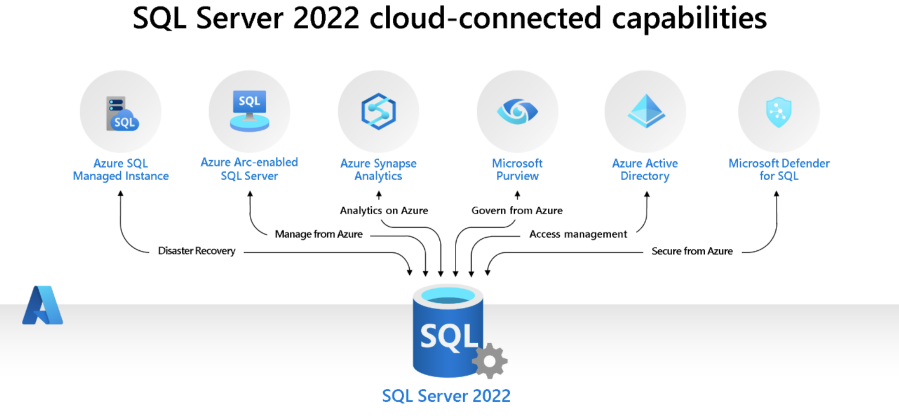Microsoft today released SQL Server 2022, the latest version of its database software, which originally launched more than 33 years ago. Microsoft describes this release as the “most Azure-enabled release of SQL Server yet” and with connections to Azure Synapse Link for enabling real-time analytics over the database, Azure Purview for data governance and disaster recovery with the help of Azure SQL Managed Instance, this release is, in many ways, the culmination of the cloud-connection groundwork the team started quite a few years ago.
“From the very beginning, the vision [for SQL Server] really was about — databases were very complex — how do you make that extremely simple? And in many ways, I think that has been a key reason why it lasted for so long and how we’ve evolved it as well,” Rohan Kumar, Microsoft’s corporate VP for Azure Data, told me. “One of the big things that I think about with SQL Server 2022 is that we’ve made it completely cloud-connected to Azure.”
He noted that while the migration of on-prem workloads is happening, Microsoft’s customers are all moving at very different speeds and some, for a multitude of reasons, may never move to the cloud at all. That, he argues, is why the company always bet on a hybrid approach, but it is also why a lot of customers started asking about how they could get the value of being in the cloud without actually having to move all of their data to it. “That was really the key thesis of why we invested in making this into a cloud release,” Kumar said.
A good example here is the new disaster recovery function that allows users to replicate their data in SQL Managed Instance on Azure and use that as a backup for their main on-premises SQL Server, which should make it easy to fail over to that when the main server goes down.
Kumar also noted that with Synapse Link, SQL Server users can now run real-time analytics over their database without having to set up a complex infrastructure. “All you need to do is check a box and say: ‘replicate this data in near real time.’ It lands it into Synapse and you can have your Power BI report that’s reading that data and that whole pipeline is just built for you,” he said.
And for companies that do indeed have a hybrid setup, support for the Purview data governance service now enables them to set their policies, no matter whether the data resides in SQL Server in the cloud or on premises.
In addition to the work on the new cloud-connected capabilities, the team also, of course, worked on improving the database’s overall performance, stability and security posture. At the core of that work, at least for this release, was the database’s intelligent query processing engine, which can now optimize queries in a number of more complex scenarios, for example.
Also interesting is a new pay-as-you-go billing model for SQL server through Azure Arc, Microsoft’s platform for managing cloud and on-premises resources. Using a connection to Azure Arc, which is part of the SQL Server 2022 setup process, on-premises users can now also opt for cloud-enabled billing to manage consumption spikes or for ad hoc use cases.
As Kumar noted, SQL Server usage, despite all of the competition available today, continues to grow (though in part, that’s driven by existing customers expanding their usage).
The new edition of SQL Server is now generally available, including the free Developer and Express editions.
Microsoft’s SQL Server 2022 is all about Azure by Frederic Lardinois originally published on TechCrunch
















 English (US) ·
English (US) ·